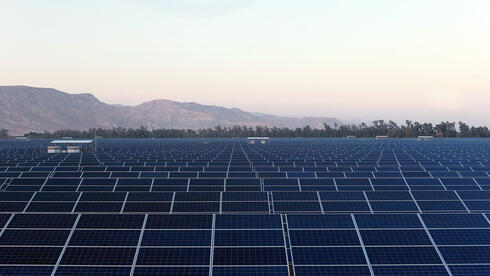Kibbutz Be’eri makes first major investment since October 7 with $35M renewable energ
October 26, 2025
Kibbutz Be’eri, one of the communities hardest hit in the October 7 Hamas attack, is making its largest investment since the disaster. Together with Kibbutz Hatzerim and Giza Singer Even’s infrastructure fund, Be’eri will on Sunday sign an agreement to purchase 25% of renewable energy company Arava Power for NIS 115 million (approximately $35M), valuing the company at NIS 400–450 million after cash ($107M-$122M).
The investment will be made through a special allocation of new shares, bringing a direct capital inflow of NIS 115 million into Arava Power. The infrastructure fund will contribute NIS 70 million, while Be’eri and Hatzerim will each invest NIS 20 million.
Be’eri’s share of the funding comes from its own businesses, led by Be’eri Printing Press, one of the kibbutz’s main sources of income.
Earlier this year, the Homa and Migdal fund, which represents multiple kibbutzim, was expected to invest in Arava Power, but the deal was ultimately executed independently by Be’eri and Hatzerim.
In addition, Giza’s fund will acquire 5% of Arava Power’s shares from Phoenix Insurance for NIS 25 million, based on the same valuation. Phoenix, which currently holds about 40% of the company, is expected to reduce its stake to below 20% ahead of Arava Power’s planned public offering on the Israeli capital market. Israeli law prohibits institutional investors such as Phoenix from holding more than 20% of a public company.
Giza’s fund, whose anchor investors include Meitav Investment House and Meitav Gemel, is also expected to acquire additional shares from existing Arava Power shareholders.
Related articles:
Founded in 2007 by Kibbutz Ketura and David Rosenblatt, who serves as vice chairman, Arava Power is currently owned by Kibbutz Ketura and a group of private investors (51.5%), The Phoenix (42%), KKL-JNF (5.5%), and the Arava Institute for Environmental Studies (1%), based in Kibbutz Ketura. The company, managed by Ilan Zidkony, employs 15 people.
This marks Arava Power’s first fundraising round since 2012, intended to finance the expansion of its solar energy operations in the United States and the development of energy storage projects in Israel.
One of Israel’s earliest solar developers, Arava Power connected the country’s first 5-megawatt solar field to the national grid in 2011. However, it has been relatively slow to expand abroad. Only last year did it complete its first international commercial project, SUNRAY in Texas, a 270-megawatt photovoltaic solar project developed with Paz Group and Menorah Mivtachim, at a total cost of $350 million.
Giza’s infrastructure fund focuses on investments in energy, renewable power, and public services, and the Arava Power deal was reviewed for over a year.
One of the main beneficiaries of the transaction is Kibbutz Ketura, Arava Power’s founding shareholder and controlling stakeholder. Ketura’s stake is currently valued at about NIS 220 million. With only 180 members and 500 residents, the kibbutz could see its holdings diluted to roughly NIS 165 million after the new share allocation, nearly NIS 1 million per member on paper. Once Arava Power lists publicly, Ketura will be able to reduce its holdings and realize significant profits from its long-standing investment.
For Kibbutz Be’eri, the deal marks both a financial and symbolic milestone. More than 100 of its residents were murdered in the Hamas assault, with many others wounded or taken hostage. Most homes in the kibbutz were destroyed or severely damaged.
“We see the energy market as a growth engine,” said Amit Shalvi, economic director of Kibbutz Be’eri. “Because we have land and because we can join a long-standing industry, we don’t want a purely financial investment that amounts to renting land. We want to be partners in the company itself, not only to profit from the land, but also from the sale of electricity. We are a kibbutz strong enough to do that.”
Kibbutz Hatzerim, Be’eri’s partner in the acquisition, is best known for developing and owning a 20% stake in irrigation company Netafim. The kibbutz is also currently providing temporary housing for Be’eri residents until they are able to return home.
Search
RECENT PRESS RELEASES
Related Post




